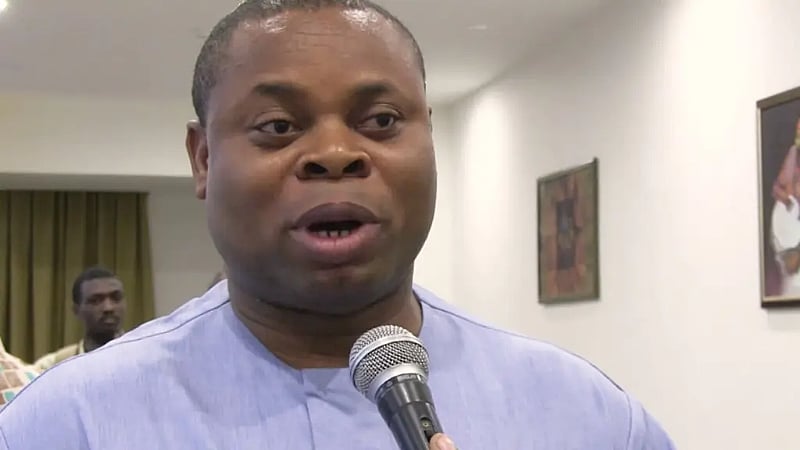Franklin Cudjoe, the Founding President of IMANI Africa, a prominent policy think tank in Ghana, has launched a scathing critique of the National Democratic Congress (NDC) government’s approach to combating illegal small-scale mining, commonly known as “galamsey.” Cudjoe argues that the NDC, under President John Mahama, is resorting to the same justifications and rhetoric employed by the previous New Patriotic Party (NPP) administration, despite having campaigned on a promise to decisively address the issue. This perceived inaction has prompted concerns that the NDC is failing to live up to its commitments and is merely replicating the ineffective strategies of its predecessor. Cudjoe’s criticism centers on the government’s allocation of GH¢50 million in the 2025 budget to combat galamsey, a figure significantly higher than the GH¢10 million allocated by the NPP in the previous year. This increased funding, according to Cudjoe, sets a higher standard of accountability for the NDC, requiring demonstrable results rather than recycled excuses.
Cudjoe’s critique highlights a broader pattern of political rhetoric surrounding galamsey in Ghana. Both major parties, the NDC and NPP, have publicly condemned the practice and pledged to eradicate it while in opposition. However, upon assuming power, both have faced challenges in effectively implementing their promises. This cyclical pattern of promises and inaction underscores the complex nature of the galamsey problem, which involves intricate social, economic, and political factors. Cudjoe’s intervention serves as a reminder that increased funding alone is insufficient; what is needed is a fundamental shift in approach, moving beyond rhetoric and towards tangible action.
The IMANI Africa president specifically takes issue with the government’s proposed initiatives like the “Blue Water Guards,” intended to protect Ghana’s environment and natural resources. He dismisses these as “fancy names” and urges the government to focus on concrete actions to curb illegal mining activities. This skepticism reflects a broader concern among civil society organizations that government efforts are often more focused on creating the appearance of action rather than addressing the root causes of the problem. Cudjoe’s call for demonstrable results emphasizes the need for transparency and accountability in the government’s handling of the galamsey issue. The public, having witnessed repeated failures by successive administrations, demands tangible evidence of progress, beyond symbolic gestures and grand pronouncements.
The galamsey problem in Ghana has persisted for years, posing a significant threat to the country’s environment and water resources. Illegal mining operations often employ destructive methods that contaminate rivers, destroy forests, and degrade agricultural lands. This environmental damage has far-reaching consequences, affecting the livelihoods of communities dependent on these resources and posing long-term risks to the nation’s ecological health. The failure of successive governments to effectively address galamsey has fueled public frustration and eroded trust in political institutions. Cudjoe’s criticism echoes the sentiments of many Ghanaians who are weary of empty promises and demand concrete action to protect their environment and natural heritage.
The NDC, while in opposition, heavily criticized the Akufo-Addo-led NPP administration for its perceived failure to curb galamsey. They pledged to take a more decisive approach if elected, raising public expectations for a significant shift in policy and enforcement. However, Cudjoe’s critique suggests that the NDC is now falling into the same trap, resorting to similar justifications and failing to deliver on its promises. This perceived lack of progress reinforces the perception that political will to tackle galamsey is lacking, regardless of which party is in power. The challenge for the NDC is to demonstrate that it is genuinely committed to addressing the issue and can break the cycle of inaction that has plagued previous administrations.
The fight against galamsey requires a multi-faceted approach that addresses the underlying drivers of illegal mining, including poverty, unemployment, and weak governance. Simply increasing funding and deploying security forces, as previous governments have done, has proven ineffective. What is needed is a comprehensive strategy that combines effective law enforcement with community engagement, economic diversification, and environmental rehabilitation. Cudjoe’s challenge to the NDC government is not simply to spend the allocated funds, but to demonstrate a genuine commitment to tackling the root causes of galamsey and protecting Ghana’s environment for future generations. The success or failure of the NDC in addressing this critical issue will be a crucial test of its credibility and its commitment to sustainable development.


